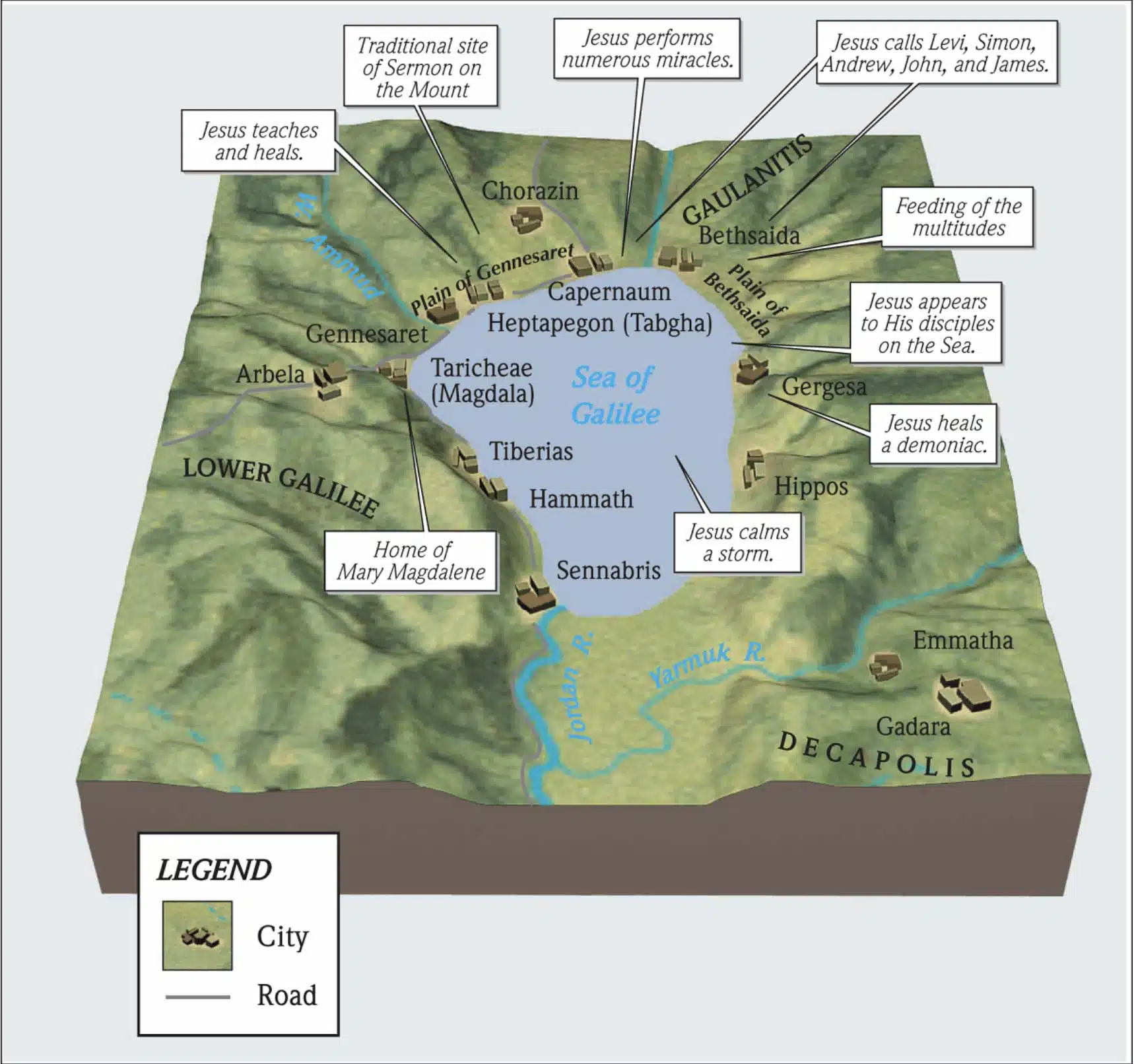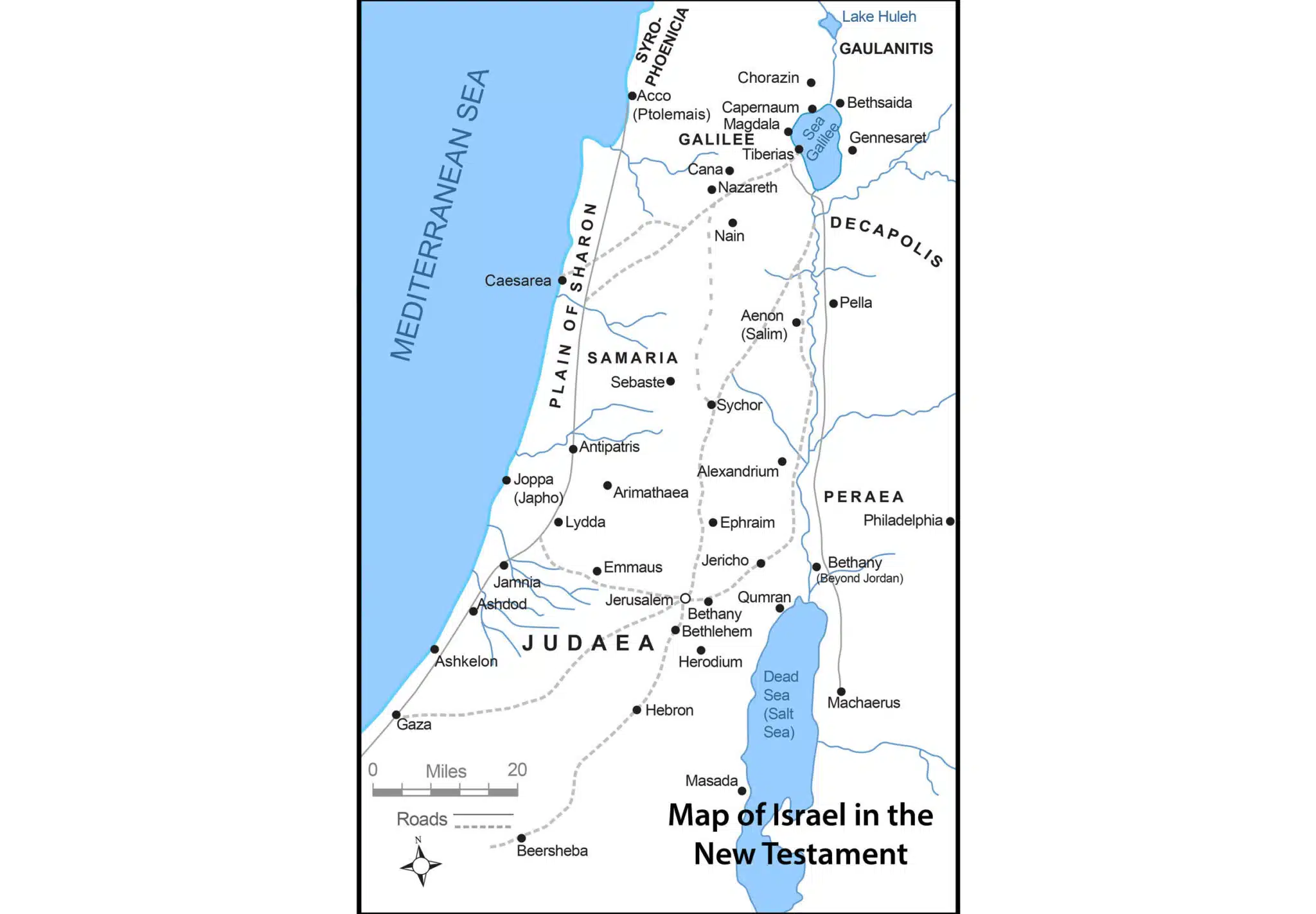In His seventh woe, Jesus compared the scribes and Pharisees to whitewashed tombs which appear clean on the outside but are full of rotting corpses.
The parallel account of this remark is found in Luke 11:44.
The seventh woe in Matthew 23 describes the Pharisees as whitewashed tombs. It was addressed to you, the scribes and Pharisees.
The scribes were religious lawyers. They meticulously searched the Law and the Tradition to create loopholes for themselves and to manufacture more and more rules to control the people. The Pharisees were the teachers of these religious customs and the leaders of the local synagogues. They crushed anyone who defied their authority or who failed to follow the scribes’ rules. Together, the scribes and Pharisees, were an unopposable and corrupt force of religious malpractice.
Jesus called them hypocrites. Hypocrite comes from the Greek term for “actor.” It is someone who pretends to be one thing but is really another. It describes someone who is fake. Jesus used this term to brand the scribes and Pharisees as religious frauds.
The reason He called them hypocrites in this woe was because even as they appeared on the outside to be pure, holy, and righteous, on the inside they were full of uncleanness, hypocrisy, and lawlessness.
The substance (and point) of this seventh woe is similar to the substance of the sixth:
“Woe to you, scribes and Pharisees, hypocrites! For you clean the outside of the cup and of the dish, but inside they are full of robbery and self-indulgence.”
(Matthew 23:25)
But instead of comparing the Pharisees and scribes to a cup or dish that is sparking clean on the outside and dirty on the inside, He directly compared them to whitewashed tombs.
The tombs Jesus had in mind may have been something like sepulchers or mausoleums—small buildings or rooms that contain the bones of the deceased. Human remains. These tombs could be ornate and adorned with statues or other beautiful symbols. To be whitewashed means to be cleaned so well that there is not a speck of dirt to diminish the shining brilliance of the tombs.
In His example, the outside of the sepulcher tombs appears beautiful as it catches and reflects pure light. But inside they are full of rotting corpses—dead men’s bones and all uncleanness.
As Jesus compared the clean outside of the cup to the scribes and Pharisees’ deeds of fake righteousness, so too does He compare their moral exterior to the appearance of the whitewashed tombs. The interior of the cup and dish of the sixth woe and the interior of these tombs full of dead men’s bones represent the corrupt and self-seeking hearts of the scribes and Pharisees.
So you, too, Jesus told them, outwardly appear righteous to men, but inwardly you are full of hypocrisy and lawlessness. Their concern for God’s law was a show to be seen by men. It was fake. In reality, they hated God’s law which asked them to love others as they loved themselves. Instead, they loved the rotten spoils that their lawlessness afforded them. They were self-seeking, exploitive, full of envy and malice. We will see all these heart-attitudes spill out when these leaders plot to execute Jesus.
Earlier in His ministry, Jesus issued a parallel woe at a dinner party that a Pharisee had invited him to attend (Luke 11:37). At that party the Pharisee took offense that Jesus had not ceremonially washed His hands before eating (Luke 11:38). Jesus said to the Pharisees at the dinner table, “Woe to you! For you are like concealed tombs, and the people who walk over them are unaware of it!” (Luke 11:44).
The idea that Jesus evoked in this prophetic woe was that just as a Jew who unknowingly came into contact with a dead body would become ceremonially unclean, so too would the people who came into contact with the Pharisees and acted like them become unrighteous as they became infected with their Bad Religion.
Biblical Text
27“Woe to you, scribes and Pharisees, hypocrites! For you are like whitewashed tombs which on the outside appear beautiful, but inside they are full of dead men’s bones and all uncleanness. 28 So you, too, outwardly appear righteous to men, but inwardly you are full of hypocrisy and lawlessness.
Check out our other commentaries:
-
1 Samuel 17:50-58 meaning
David and Israel are victorious against the Philistines and their champion Goliath....... -
Esther 1:21-22 meaning
Ahasuerus approves of Memucan’s counsel. A message goes to every province of Persia in every language of its citizens, informing the people that Vashti is...... -
Overcomers meaning
Revelation promises an extra special blessing in the next life to the one who “overcomes.” The book of Revelation is written in order to exhort...... -
Genesis 5:12-24 meaning
Kenan was the father of Mahalalel. He was the father of Jared, who became the father of Enoch. Enoch was the father of Methuselah. ...... -
Ecclesiastes 3:1-8 meaning
Solomon’s poem about the paradoxes of life shows God’s timing and sovereignty in all things. It invites us into a perspective of balance and trust......




